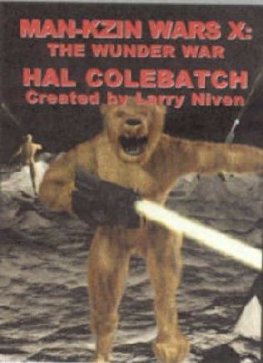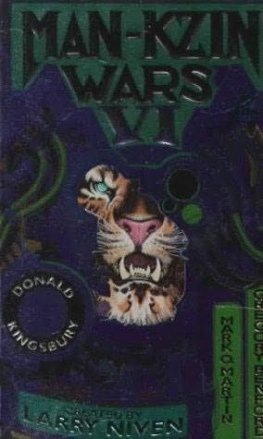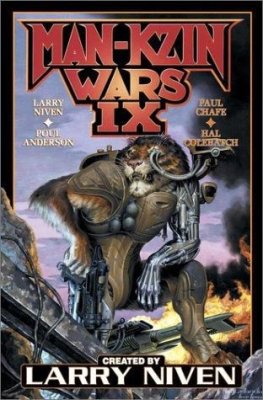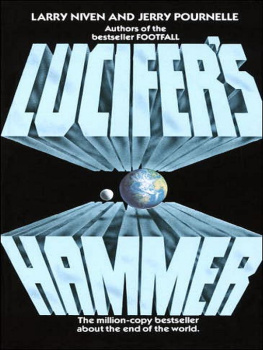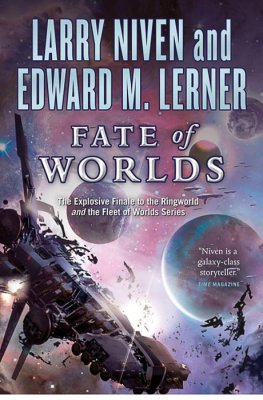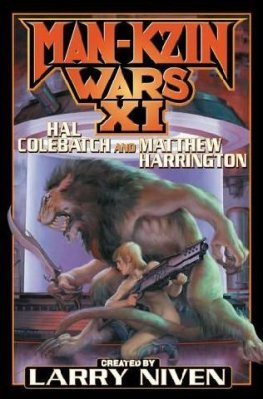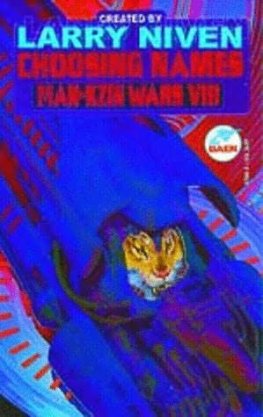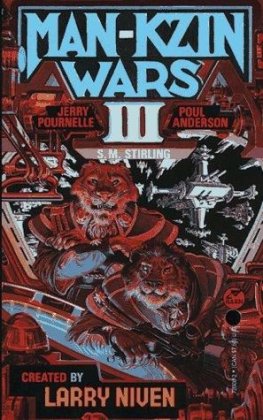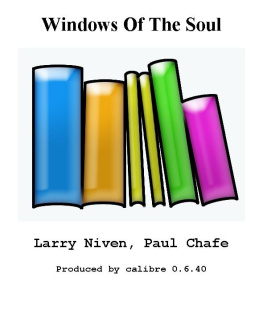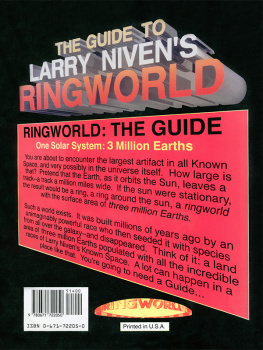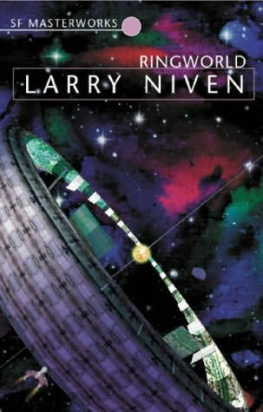FROM EDGE to edge and for all of its length, from Central Los Angeles through Beverly Hills and West Los Angeles and Santa Monica to the sea, Wilshire Boulevard was a walkway.
Once there had been white lines on concrete, and raised curbs to stop the people from interfering with the cars. Now the lines were gone, and much of the concrete was covered with soil and grass. There were even a few trees. Concrete strips had been left for bicycles, and wider places for helicopters carrying cargo too big for the displacement booths.
Wilshire was wide for a walkway. People seemed to hug the edges, even those on bikes and motor skates. A boulevard built for cars was too big for mere people.
Outlines of the street still showed through. Ridges in the grass marked where curbs had been, with breaks where there had been driveways. Some stretches in Westwood had a concrete center divider. The freeway ramps were unchanged and unused. Someday the city would do something about them.
Jerryberry Jansen lived in what had been a seaside motel halfway between Bakersfield and San Francisco. On long-ago summer nights the Shady Rest had been packed with transients at ten dollars a head. Now it made a dandy apartment house, with swimming pool and everything, including a displacement booth outside the manager's office.
There was a girl in the booth when Jerryberry left his apartment. He glimpsed long, wavy brown hair and the shape of her back in the instant before she disappeared. Janice Wolfe. Too bad she hadn't waited. . but she hadn't even seen him.
Nobody was ever around the booths long enough to say hello to. You could meet someone by hovering outside the booths, but what would they think?
Meeting people was for the clubs.
A displacement booth was a glass cylinder with a rounded top. The machinery that made the magic was invisible, buried beneath the booth. Coin slots and a telephone dial were set into the glass at sternum level.
Jerryberry inserted his C.B. A. credit card below the coin slots. He dialed by punching numbered buttons. Withdrawing the credit card closed a circuit. An eye blink later he was in an office in the Central Broadcasting Association building in downtown Los Angeles.
The office was big and empty. Only once in an aeon was all that empty space ever used, though several score of newstapers saw it for a few seconds each day. One wall was lined with displacement booths. A curved desk down at the end was occupied by Jerryberry's boss.
George Bailey was fat from too much sitting and darkly tanned by the Nevada sun. He commuted to work every morning via the long-distance booths at Los Angeles International. Today he waved at Jerryberry without speaking. Routine, then. Jerryberry chose one of several cameras and slung the padded strap over his shoulder. He studied several lists of numbers posted over the table before picking one.
He turned and moved to avoid three more newstapers stepping out of booths. They nodded; he nodded; they passed. As he reached for a booth door, a woman flicked in in front of him. Rush hour. He smiled at her and stepped over to the next booth, consulted the list, dialed, and was gone.
He had not spoken to anyone that morning.
The east end of Wilshire Boulevard was a most ordinary T-intersection between high, blocky buildings. Jerryberry looked around even as he was dialing. Nothing newsworthy? No. He was two blocks away and dialing.
He punched the numbered buttons with a ballpoint pen when he remembered. Nonetheless, his index finger was calloused.
The streets of the inner city were empty, this early. In a minute or so Jerryberry was in sight of the freeway. He stepped out of the booth to watch trucks and bulldozers covering this part of the Pasadena-Harbor Freeway with topsoil. Old machines find new use-but others were covering the event. He moved on.
The booths were all identical. He might have been in a full-vision theater, watching scenes flick around him. He was used to the way things jerked about. He flicked west on Wilshire, waiting for something to happen.
It was a cheap, effective way to gather news. At a chocolate dollar per jump per man, C. B. A. could afford to support a score of wandering newstapers in addition to the regular staff. They earned low salaries, plus a bonus for each news item, plus a higher bonus per item used. The turnover was high. It had been higher before C.B.A. learned not to jumble the numbers at random. An orderly progression down a single street was easier on the mind and nerves.
Jerryberry Jansen knew every foot of Wilshire. At twenty-eight he was old enough to remember cars and trucks and traffic lights. When the city changed, it was the streets that had changed most.
He watched Wilshire change as he dialed.
At the old hat-shaped Brown Derby they were converting the parking lot into a miniature golf course. About time they did something with all that wasted space. He queried Bailey, but Bailey wasn't interested.
The Miracle Mile was a landscaped section. Suddenly there were people:
throngs of shoppers, so thick that many preferred to walk a block instead of waiting for a booth. They seemed stratified, with the older people hugging the curbs and the teens taking the middle of the street. Jerryberry had noticed it before. As a child he'd been trained to cross only in the crosswalks, with the light. Sometimes his training came back, and he found himself looking both ways before he could step out from the curb.
He moved on, west, following the list of numbers that was his beat.
The mall had been a walkway when displacement booths were no more than a theorem in quantum mechanics. Dips in the walk showed where streets had crossed, but the Santa Monica Mall had always been a sanctuary for pedestrians and window-shoppers. Here were several blocks of shops and restaurants and theaters, low buildings that did not block the sky.
Displacement booths were thick here. People swarmed constantly around and in and out of them. Some travelers carried fold-up bicycles. Many wore change purses. From noon onward there was always the tension of too many people trying to use the same space for the same purpose.
The argument started outside Penney's Department Store. At the time one could see only that the police officer was being firm and the woman- middle-aged, big, and brawny-was screaming at the top of her lungs. A crowd grew, not because anyone gave a damn but because the two were blocking the walkway. People had to stream around them.
Some of them stopped to see what was happening. Many later remembered hearing the policeman repeating, "Madam, I place you under arrest on suspicion of shoplifting. Anything you say-" in a voice that simply did not carry. If the officer had used his shockstick then, nothing more would have happened. Maybe. Then again, he might have been mobbed. Already the crowd blocked the entire mall, and too many of them were shouting-genial or sarcastic suggestions, random insults, and a thousand variations of "Get out of my way!" and "I can't, you idiot!" for any to be heard at all.
At 12:55 Jerryberry Jansen flicked in and looked quickly about him while his hands were reinserting his credit card. His eyes registered the ancient shops at the end of the mall and lingered a moment on the entrance to Romanoff's. Anyone newsworthy? Sometimes they came, the big names, for the cuisine or the publicity. No? passed on, jumped to the crowd in front of Penney's two blocks down.
There were booths nearer, but he didn't know the numbers offhand. Jerryberry picked up his card and stepped out of the booth. He signaled the studio but didn't bother to report. Circumstantial details he could give later. But he turned on his camera, and the event was now... real.
He jogged the two blocks. Whatever was happening might end without him.


